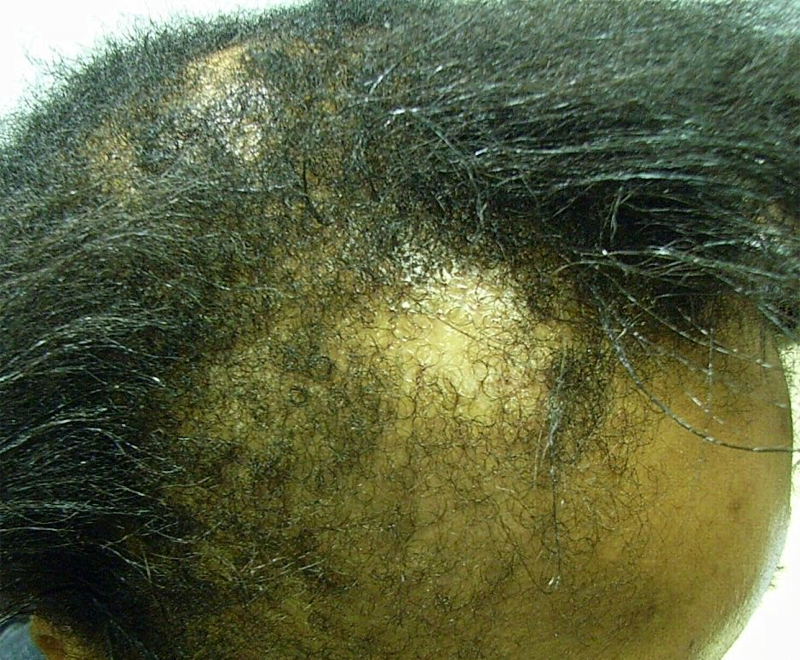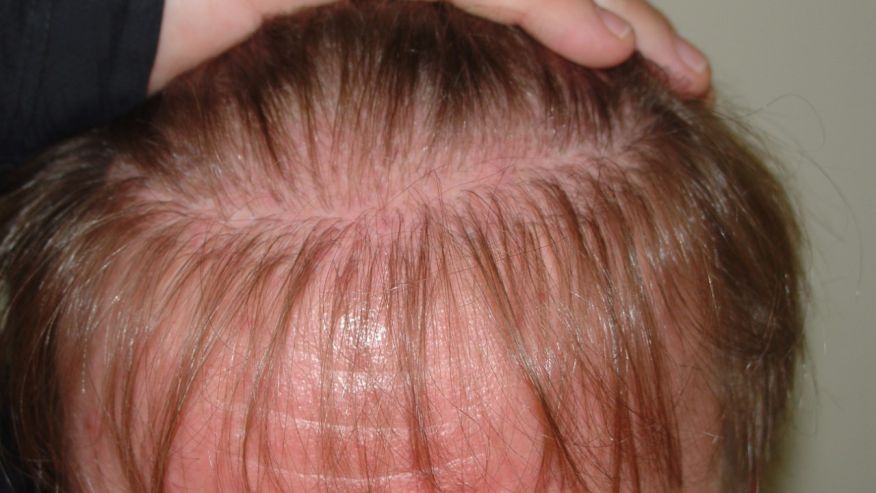
What do Dwayne Johnson, Patrick Stewart, Vin Diesel, and LL Cool J have in common? They all have been listed as some of the world’s sexiest leading men, and they all sport a bald head. Although any of them could successfully represent a “Bald is Beautiful” campaign, most people facing hair loss are desperately seeking ways to salvage what strands are still connected to their head.
According to The Washington Post, American hair loss sufferers spend more than 3.5 billion dollars a year in an attempt to treat their hair loss. Unfortunately, 99 percent of all products being marketed in the hair loss treatment industry are completely ineffective for the majority of those who use them.
Most of us normally shed 50 to 100 hairs a day. This loss of hair generally does not cause thinning of hair because at the same time new hair is growing on your scalp. But sudden hair loss is something to take seriously. This loss of hair occurs when the cycle of hair growth and shedding is disrupted or when the hair follicle is destroyed and replaced with scar tissue.
But what about the gradual loss of hair? The moments when you can’t help but notice the pile of hair in the shower drain or your hair brush. Are these people doomed to a life of lacking luscious locks?
Watch for Early Signs
Gerald G. Krueger, MD, an expert in the diagnosis and treatment of psoriasis and hair loss with University of Utah Health, doesn’t think so. The key is to look for early signs. “For women, they may notice that their ponytail requires more wraps with a hair elastic, or it dries quicker,” Krueger says. He adds that is important to note when your hair feels finer or doesn’t hold a curl like it once did. These are both early signs of hair loss.
In men, signs of hair loss can occur as early as middle school. “Hair loss occurs 5 to 10 years sooner in men than in women,” Krueger says. It’s important to catch signs early because once the hair follicle stops producing hair, it cannot recover.
Understand the Hair Growth Cycle
People have receptors in the hair-making cells, and these specialized receptors are distributed all over the scalp. Every three to five years, this hair-growth cycle gets shorter, and the hair follicle itself gets thinner.
Blame Genes
In 2005, German researchers uncovered a hair-loss gene that is carried by an X chromosome from our mothers. Then in 2008, a second gene involved in hair loss was discovered that indicated baldness could come from either parent. “Thirty percent of the population of men and women have heritable causes of hair loss,” Krueger says. “It’s called, Androgenetic Alopecia. And, as far as we know, the mechanisms beyond androgens are likely the same in men and women.” The good news is that the threat of hair loss subsides as we age. “If you don’t have balding onset before age 35, you’ll likely never have balding on top.”
Look to Proven Solutions
For the past twenty years, Krueger has been treating men and women who are living with hair loss. Despite the flood of hair treatment products, only a handful of treatments have been proven effective to help hair grow back. “Rogaine, either taken in pill form or used topically is effective,” Krueger says. “As are hair transplants.”
Originally developed to treat men suffering from an enlarged prostate gland, finasteride was found to encourage hair growth. It is distributed under the brand names of Proscar and Propecia. Along with Finasteride, Minoxidil is the only other FDA-approved treatment for hair loss.
Millions may be living with thinning hair, but that doesn’t mean they have thinning hopes that a solution to effective hair loss treatment is right around the corner. Further research is exploring the results of physiopathological pathways, genetic and cell behaviors that may provide a permanent cure for hair loss.
[“Source-healthcare”]
















